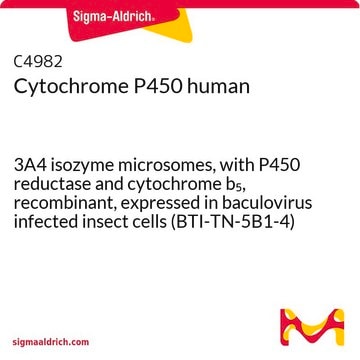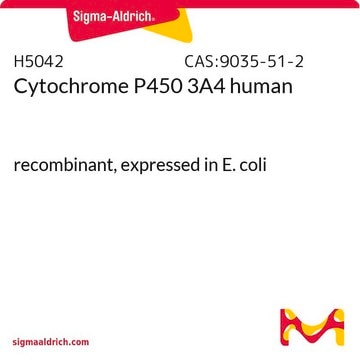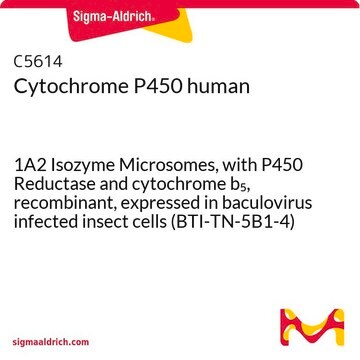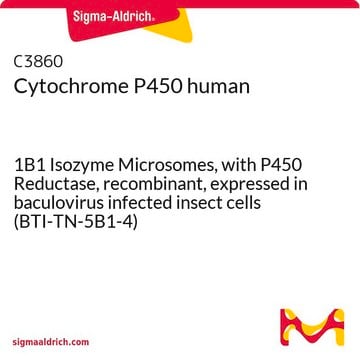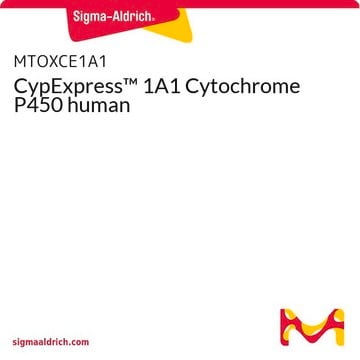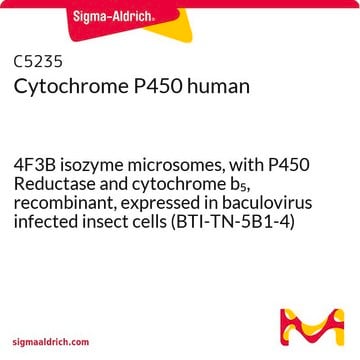C3735
Cytochrome P450 human
1A1 Isozyme Microsomes, with P450 Reductase, recombinant, expressed in baculovirus infected insect cells (BTI-TN-5B1-4)
About This Item
Recommended Products
biological source
human
Quality Level
recombinant
expressed in baculovirus infected insect cells (BTI-TN-5B1-4)
form
solution
specific activity
≥4 units/pmol enzyme
mol wt
45-60 kDa
packaging
vial of 0.5 nmol
technique(s)
activity assay: suitable
solubility
water: soluble
suitability
suitable for molecular biology
UniProt accession no.
application(s)
cell analysis
shipped in
dry ice
storage temp.
−70°C
Gene Information
human ... CYP1A1(1543)
Looking for similar products? Visit Product Comparison Guide
General description
Cytochrome P450 (CYP) enzymes are a family of enzymes that are encoded by the P450 genes. These enzymes are membrane bound hemoproteins. that are mainly found in the liver’s endoplasmic reticulum.
Biochem/physiol Actions
Physical form
Preparation Note
Storage Class Code
12 - Non Combustible Liquids
WGK
WGK 2
Flash Point(F)
Not applicable
Flash Point(C)
Not applicable
Certificates of Analysis (COA)
Search for Certificates of Analysis (COA) by entering the products Lot/Batch Number. Lot and Batch Numbers can be found on a product’s label following the words ‘Lot’ or ‘Batch’.
Already Own This Product?
Find documentation for the products that you have recently purchased in the Document Library.
Customers Also Viewed
Our team of scientists has experience in all areas of research including Life Science, Material Science, Chemical Synthesis, Chromatography, Analytical and many others.
Contact Technical Service